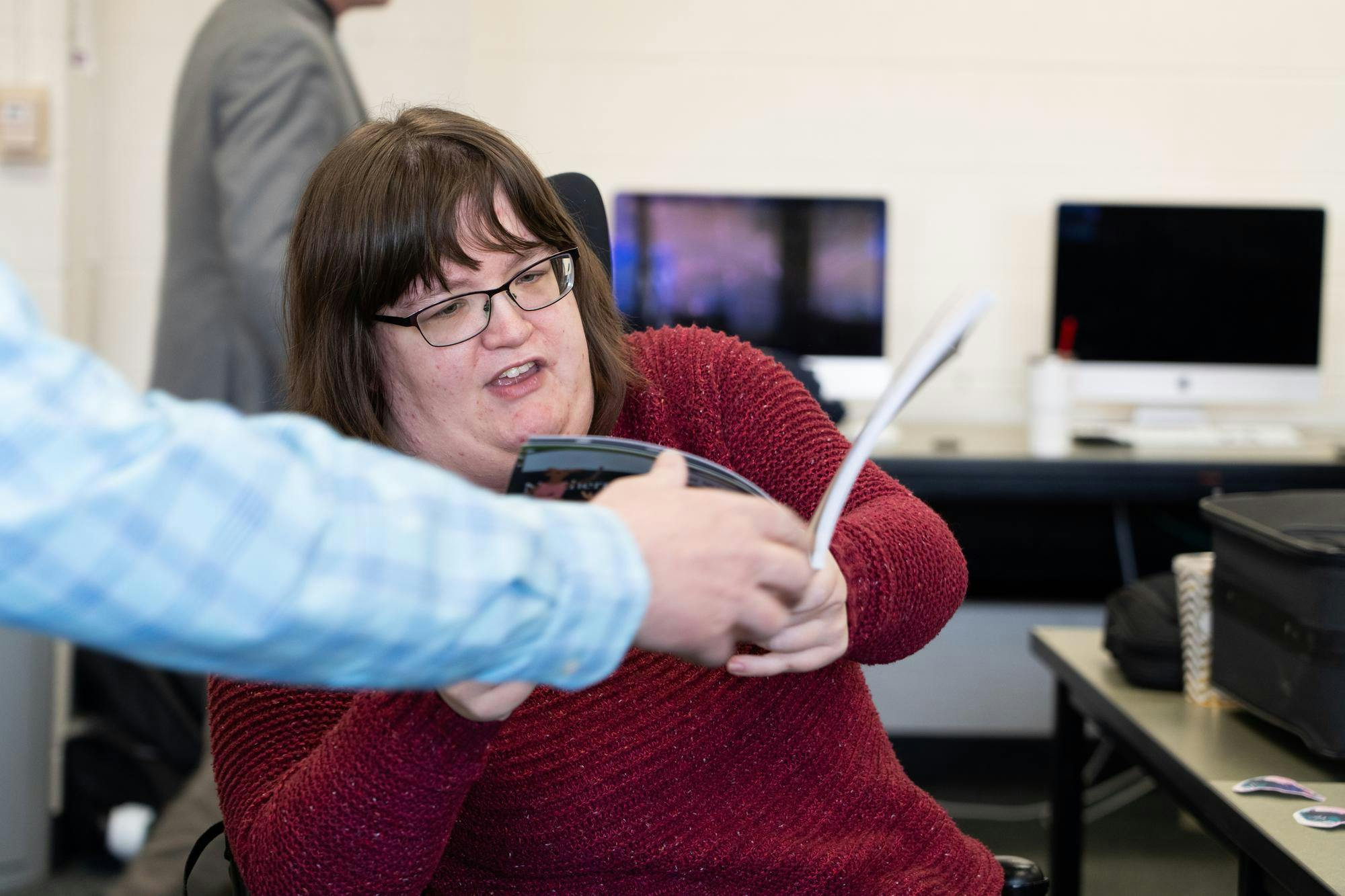Michigan State University has received a $25 million grant to address the state’s shortage of direct care workers from the Michigan Department of Health and Human Services. A research team housed in the College of Osteopathic Medicine will use part of the grant to establish a Direct Care Worker Career Center.
IMPART Alliance is an MSU-led research team and nonprofit organization dedicated to advancing the direct care workforce profession through training programs, advocacy, research and career development.
Direct care workers are individuals who work directly with other people who need long term long term support and services, including certified nursing assistants, personal care aides, and home health aides. They often work with elderly individuals, people with disabilities and people with mental illnesses.
Assistant Director Bethany Duyser said she often finds that people are confused by the term direct care worker. Because of the wide variety of services direct care workers provide, it can often be confusing to understand what kind of profession it is, she said.
“Whenever people want to really categorize them, it's like, ‘Well, is it a healthcare job? Is it a social services job?’ and I'm like, it's an everything job,” Duyser said. “It's wherever there's someone who needs supports and services.”
The direct care workforce is currently facing a number of challenges, according to Duyser. She said said the top concerns are a growing population of individuals needing care, a shortage of workers, low salaries and a general lack of respect for the profession.
“As people are learning more about the essential care and the essential value and that demand increases that may hopefully alleviate some of those challenges,” Duyser said.
Children’s book author and IMPART partner Dorothy Paad, who has cerebral palsy, has had the same primary direct care worker, Tracy, for seven years. One of the biggest misunderstandings of direct care workers she encounters is how deeply their connection runs
“Some people say she's just your employee, Dorothy,” Paad said. “When you spend that amount of time with somebody for seven years and you trust them with your very dignity, she's family.”
With Tracy’s help, and support from others, Paad has accomplished a number of things she used to be told were impossible. She has become an award-winning author, studied dance in college and spoken to crowds about her life.
“I would merely exist instead of live if there was not a direct care worker in my life,” Paad said.
Promoting and encouraging the bond between direct care workers and their recipients is one of IMPART’s goals. Duyser said the passion direct care workers have for their profession is something she wishes more people understood.
“That's the number one thing that people say they love about this work, is the people that they provide services for,” Duyser said. “They get to know them, they care about them, and they build a meaningful relationship.”
Expanding and advancing the workforce as a whole will allow direct care workers to lean into these relationships and devote their time to their work, Duyser said.
“There are a lot of open jobs, but are those jobs tenable for people?” Duyser said. “If it's low paid work or schedules that can't be filled so that someone is working an adequate number of hours, or it's a situation that is hard to manage with your personal life or your work schedule. Is it really that it's a shortage of direct care workers or that these jobs just can't be filled?”
IMPART will use its grant to support the workforce directly, as well as creating a career center to better prepare individuals entering the industry. Duyser said they are looking to encourage competency-based training, recruit direct care workers and invest in infrastructures that will better support workers.
“Everyone agrees that this direct care workforce numbers problem is really impeding their ability to do their work,” Duyser said. “Everybody wants a solution. So, (we are) finding ways to use this grant money to bring other players to the table and get everyone engaged from different perspectives.”
Support student media!
Please consider donating to The State News and help fund the future of journalism.
Discussion
Share and discuss “MSU nonprofit research team receives $25 million to improve direct care workforce” on social media.







